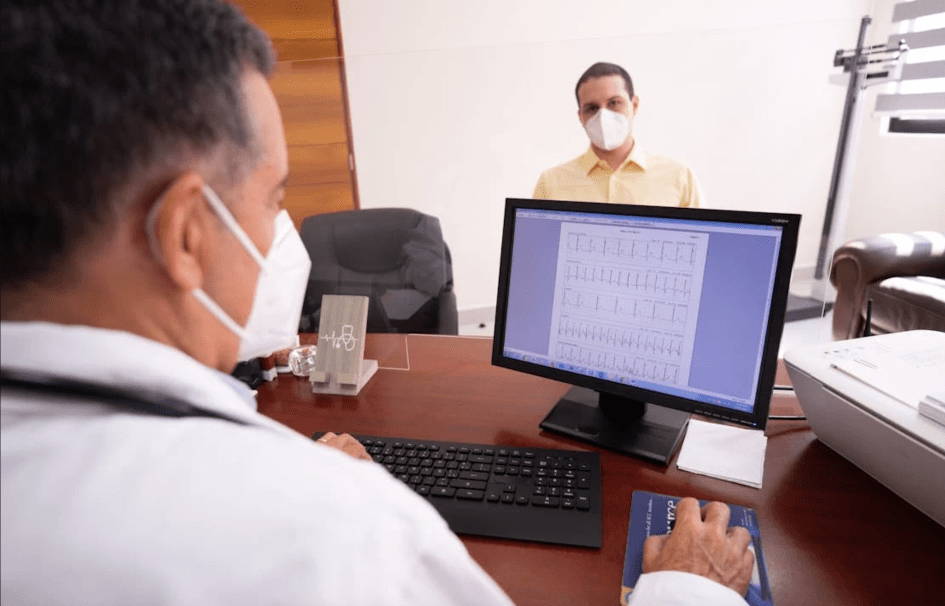
Addiction recovery clinics play a pivotal role in helping individuals overcome substance use disorders and rebuild their lives. However, the effectiveness of these clinics often depends on their ability to streamline processes, track progress, and provide personalized care.
According to data from the 2022 National Survey on Drug Use and Health (NSDUH), over 48 million Americans struggle with substance abuse. Out of these 48 million, only 25 percent receive substance abuse treatment.
On top of that, those who seek treatment often fail to get the best possible support from rehab centers or clinics. This, however, is changing, thanks to the use of specialized software alongside regular electronic health record (EHR) systems in addiction recovery practice management.
In recent years, substance use treatment software has emerged as a game-changer in the field of addiction recovery. By leveraging advanced technology, these software solutions offer numerous benefits that can significantly enhance the efficiency and effectiveness of addiction recovery clinics.
Let’s see how substance use treatment software can revolutionize your clinic and drive positive outcomes for your patients.
Personalized Treatment Plans
Traditional approaches to treatment often rely on generic protocols that may not address individual factors contributing to addiction. With advanced software, clinics can assess patients comprehensively, taking into account factors such as co-occurring disorders, family history, and response to previous treatments.
By customizing treatment plans based on this data, clinics can improve patient engagement, adherence, and ultimately, outcomes.
Efficient Data Management
Managing patient data efficiently is essential for delivering high-quality care and complying with regulatory requirements. Substance use treatment software streamlines data management processes by centralizing all patient information in a secure, electronic format. This includes intake forms, assessment results, progress notes, treatment plans, and medication management.
According to Accumedic Computer Systems, substance use treatment software will allow you to ensure an efficient workflow. The software’s real-time data-sharing facilities also help treatment teams provide better collaborative patient care. Moreover, automated documentation features reduce the burden of paperwork, allowing clinicians to focus more on direct patient care.
Real-Time Progress Monitoring
Monitoring patient progress in real time is crucial for identifying potential relapse triggers and adjusting treatment strategies accordingly. Substance use treatment software offers robust tracking and monitoring capabilities, enabling clinicians to monitor key metrics such as sobriety milestones and medication adherence.
Besides, real-time monitoring allows clinicians to detect patterns, intervene proactively when necessary, and provide timely support to patients at risk of relapse.
According to the American Addiction Centers, a relapse initiates with a high-risk situation followed by poor coping responses. Hence, it’s clear that the signs of relapse will always be there. Experts only need to observe and connect the dots, something they can do with the right software.
Outcome Measurement and Reporting
Assessing the effectiveness of treatment interventions is essential for continuous quality improvement and demonstrating value to stakeholders. Substance use treatment software facilitates outcome measurement and reporting by providing tools to track treatment effectiveness, patient satisfaction, and adherence to evidence-based practices.
Clinics can generate comprehensive reports that highlight key performance indicators, trends over time, and areas for improvement. These insights enable clinics to refine their treatment approaches, allocate resources more effectively, and communicate their impact to funders, accrediting bodies, and other stakeholders.
Integration of Telehealth Services
According to Grand View Research, the global telehealth market is worth $101.2 billion. The rise of this market has transformed the delivery of healthcare services, particularly in the field of addiction recovery.
Substance use treatment software often includes integrated telehealth functionality, allowing clinics to conduct virtual therapy sessions, medication management appointments, and support group meetings remotely. This flexibility is especially beneficial for patients who face barriers to accessing traditional in-person care, such as transportation challenges or geographical limitations.
By offering telehealth services, clinics can extend their reach, improve continuity of care, and enhance patient engagement throughout the recovery process.
Enhanced Communication and Collaboration
Effective communication and collaboration among members of the treatment team are critical for delivering coordinated and comprehensive care. Substance use treatment software fosters communication and collaboration by providing secure messaging platforms, shared calendars, and task assignment features.
Clinicians can communicate securely with colleagues, share important updates about patient progress, and coordinate care transitions seamlessly. Additionally, integrated referral management tools enable clinics to connect patients with community resources and support services, facilitating a holistic approach to recovery.
In conclusion, substance use treatment software offers several benefits that can transform the way addiction recovery clinics operate and improve patient outcomes. From personalized treatment planning to enhanced communication and collaboration, these software solutions empower clinics to deliver high-quality, patient-centered care more efficiently and effectively.
By embracing such technology, clinics can optimize their operations and make a lasting impact on the lives of individuals struggling with addiction.



